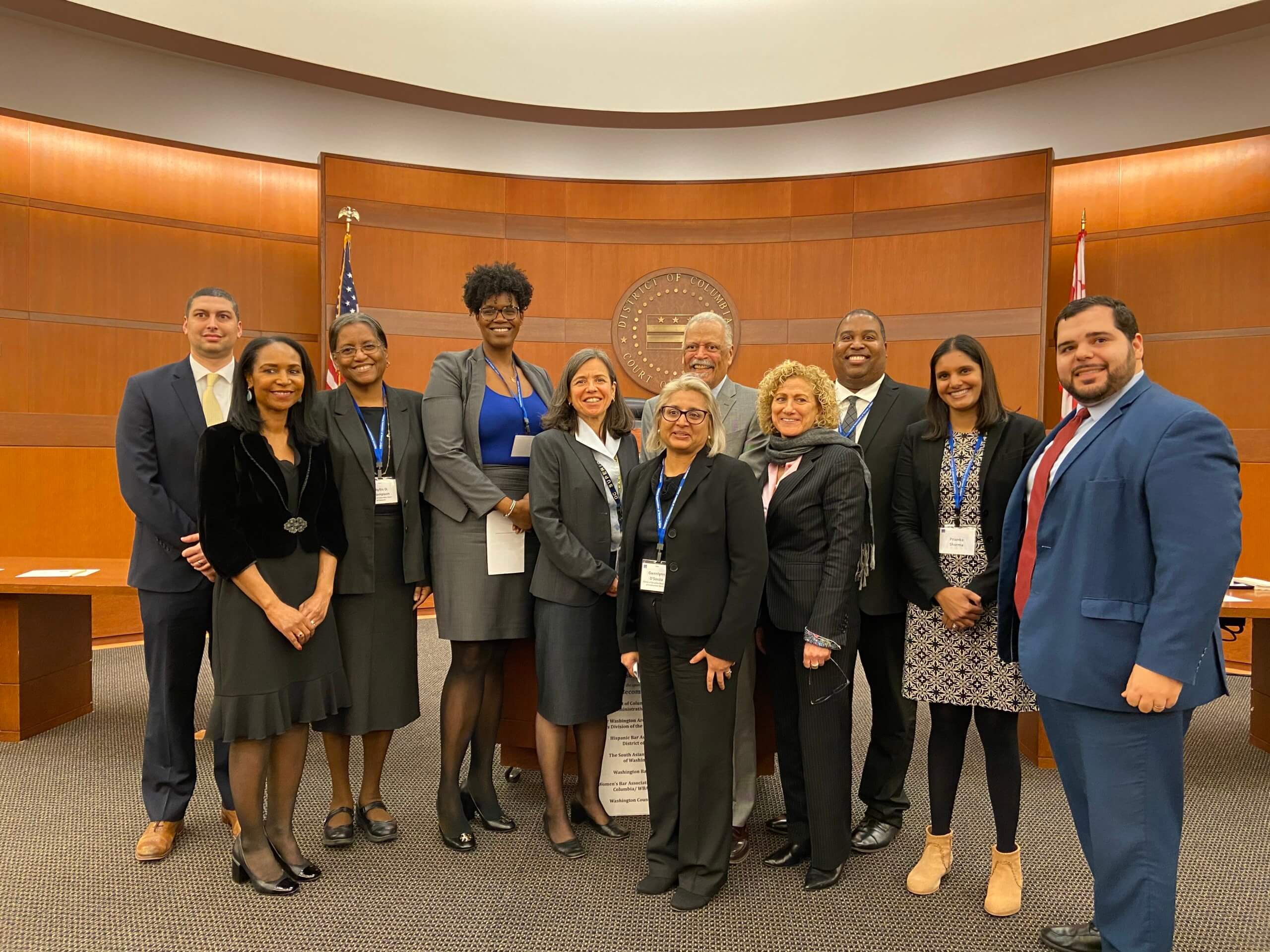
Becoming a Judge
By Prianka Sharma
Washington Council of Lawyers recently co-hosted a vibrant panel program entitled “Becoming a Judge.” Held at the D.C. Court of Appeals, the event provided insight into the pathways to the bench, highlighted real-world tips for applying to be a judge, and gave attendees the opportunity to network with current judges. Some of the points raised by the panel of judges aligned perfectly with our mission of promoting pro bono and public-interest law in the District.
The panel included Judge Phyllis Thompson, Associate Judge for the D.C. Court of Appeals, Judge Heidi Pasichow and Judge Darlene Soltys, Associate Judges with the D.C. Superior Court, and Judge Emmett Sullivan, District Judge for the U.S. District Court for the District of Columbia. They began by discussing why they joined the bench. Many said one of the reasons was a desire to help people solve their legal problems while upholding and adhering to the rule of law. The judges then talked about some of the challenges that come with their position, such as often having to learn by trial and error, and the highly demanding nature of the job.
What stood out most, however, were the judges’ comments about pro se litigants. One judge said she found it surprising how many litigants were pro se. She said that when a pro se party appears before her, she found it important to educate the pro se litigant on court procedures and explain the legal factors impacting her decisions in the case, while also striving to maintain fairness and impartiality in the courtroom. According to the judges, as many as 80% of the litigants in the Domestic Relations Branch are unrepresented. When the other side of the case is represented, the pro se party is at an automatic disadvantage due to inexperience and lack of knowledge. One judge said that she tells pro se litigants about the self-help resource centers in the courthouse, but that is not an optimal solution to increasing access to justice for pro se parties.
In terms of applying to become a judge, all panelists agreed that there is no one-size-fits-all mold for a successful application. The Judicial Nomination Commission (JNC) strives to nominate a diverse slate of candidates both from a traditional diversity standpoint, but also a diversity of interests, employment, and activities. The judges stressed having strong ties to the D.C. community. If you are a government attorney or an attorney that does not appear before the local D.C. Courts, there is nothing that impresses them more then if you take the initiative to do pro bono work. Not only does this show your commitment to the residents of the District, it also shows your passion for the law and willingness to assist people without compensation.
The judges also stated that very few public-interest and non-litigation attorneys apply to become judges. They said that no one should self-select themselves out of the process simply because they think their experience isn’t “good enough.” We should all strive to promote a diverse bench, which starts with dedicated and varied applicants.
Learn more about the judicial nominations process in the District of Columbia at https://jnc.dc.gov/.
Prianka Sharma is co-chair of Washington Council of Lawyers Communications Committee






